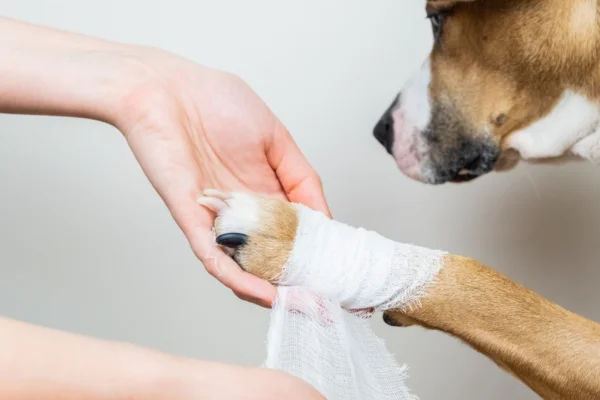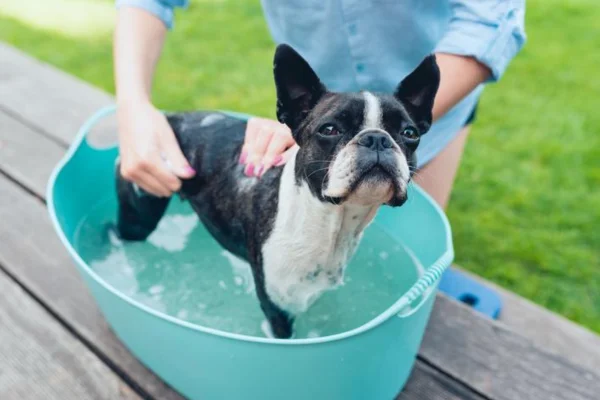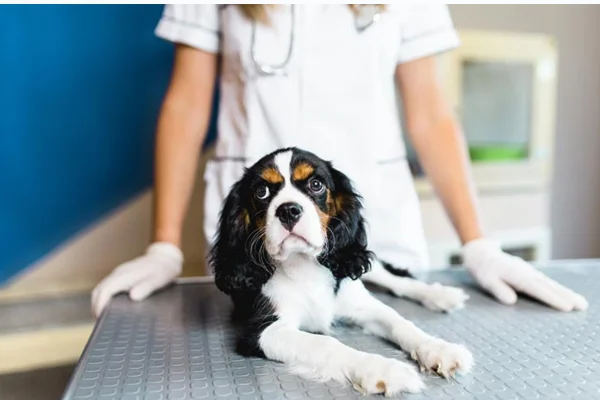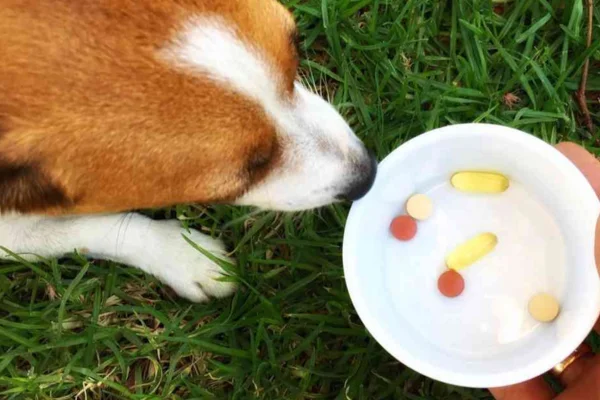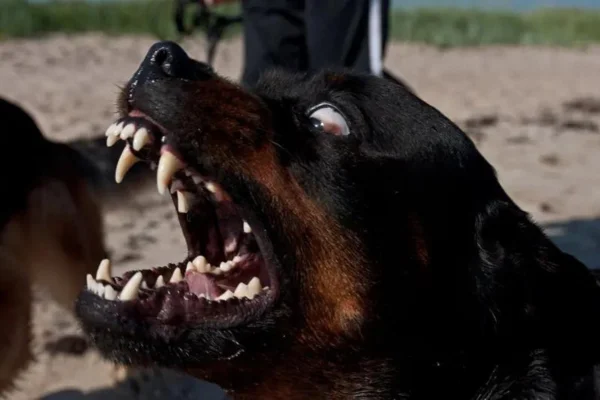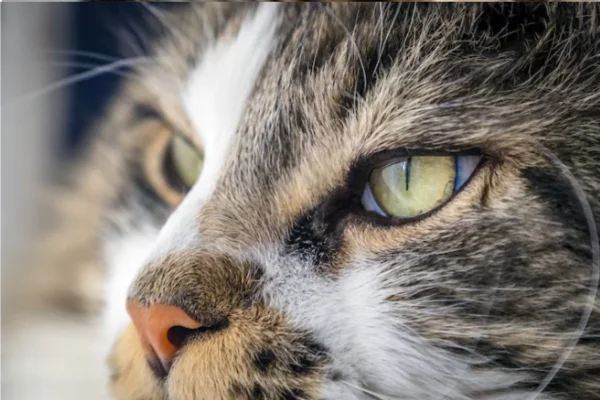The Use of Povidine Iodine in Dogs: Is it Safe?
Looking after a dog's health involves making informed decisions about the products we use to treat or prevent illness.
One of the products that often raises doubts among pet owners is povidone iodine, which is widely used in veterinary and human medicine. The question many people ask is: can povidine iodine be used on dogs?
In this article, we'll explore what povidone iodine is, its indications, safety of use in dogs and alternatives for canine health care.
Contents
What is Iodine Povidone?
Povidone iodine is a broad-spectrum antiseptic that contains iodine in a form complexed with polyvinylpyrrolidone (PVP).
This combination makes iodine more stable and less irritating to tissues. Iodine is known for its antimicrobial properties, being effective against bacteria, viruses and fungi.
Thus, povidone iodine is often used to disinfect wounds, prepare the skin for surgery and treat skin infections.
Indications for Iodine Povidone
The use of povidone iodine is quite common in veterinary medicine. Its indications include:
- Wound disinfectionPovidone iodine can be applied to open wounds to reduce the bacterial load and prevent infection.
- Pre-operative preparationIn surgery, applying antiseptic to the area to be operated on helps to minimize the risk of post-surgical infections.
- Treatment of skin infectionsInfected wounds or those at risk of infection can be treated with povidone iodine.
- Equipment disinfection: Can also be used to disinfect veterinary instruments.
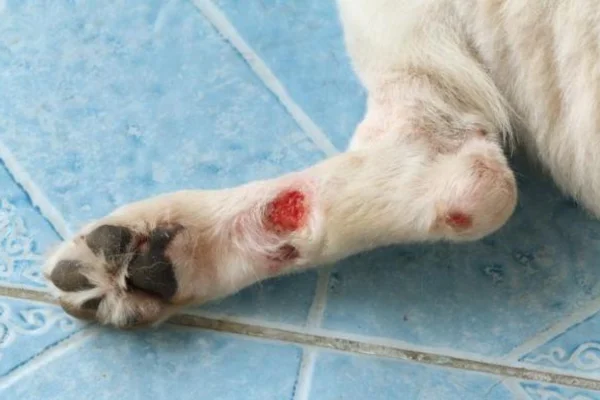
Is it Safe to Use Povidone Iodine on Dogs?
The answer to this question is not simple. Although povidone iodine is considered safe in many situations, its use must be carefully evaluated. Here are some points to consider:
1. Dilution and dosage
Povidone iodine is often marketed in concentrations that may be too strong for dogs' sensitive skin. It is therefore essential to dilute it properly before application.
Consulting a veterinarian about the correct concentration to use and how to apply it is essential to avoid irritation or adverse reactions.
2. Use on wounds
When used on wounds, povidone iodine can help with cleaning and disinfection.
However, if the wound is very deep or extensive, it's always best to see a vet for proper treatment.
Deep wounds may require suturing or other medical care that goes beyond simple disinfection.
3. Adverse reactions
Some dogs may have allergic reactions to iodine. Signs of an allergic reaction include redness, intense itching and swelling at the application site. If any reaction occurs, use of the product should be stopped immediately and a veterinarian consulted.
4. Iodine toxicity
In large quantities or with prolonged use, iodine can be toxic to dogs. Iodine toxicity can cause thyroid problems and other serious side effects. Therefore, the use of povidone iodine should be restricted to topical applications and in controlled quantities.
5. Dogs with Specific Conditions
Dogs with pre-existing health conditions, such as thyroid disease, should be treated with caution.
Iodine is an essential mineral that can affect thyroid function, and excessive exposure can aggravate existing conditions. In these cases, the advice of a veterinarian is essential.
Alternatives to Povidone Iodine
If you're worried about using povidone iodine on your dog, there are other options available for disinfecting and caring for wounds:
1. Saline solution
A saline solution can be an effective alternative for cleaning wounds. It is safe and non-irritating and can be used to wash the affected area before applying any other type of treatment.
2. Natural antiseptics
Some natural antiseptics, such as honey, have antibacterial properties and can be used on superficial wounds. Honey is known for its ability to promote healing and reduce inflammation.
3. Veterinary ointments
There are veterinary ointments and creams specifically formulated to treat wounds in dogs.
These products are generally safer and more effective than using povidone iodine, as they are developed for canine skin and have less risk of causing adverse reactions.
4. Regular visits to the vet
The best way to ensure your dog's health is to schedule regular appointments with the vet.
The vet can provide advice on the best products to use and the frequency of application, as well as carrying out tests to detect possible health problems.
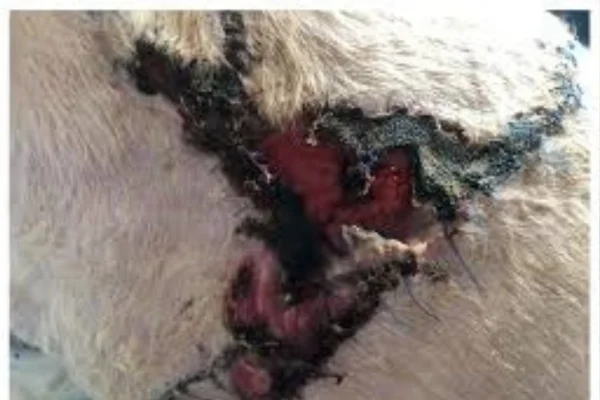
How to Apply Povidone Iodine to Dogs
If, after consulting the vet, you decide to use povidone iodine on your dog, here are some steps to follow to ensure a safe application:
1. Preparation
- Gather the MaterialsHave diluted povidone iodine, clean gauze and disposable gloves at hand.
- Wash your handsAlways start by washing your hands thoroughly before handling povidone iodine.
2. Wound assessment
- Examine the woundCheck that the wound is clean and shows no signs of infection (such as purulent discharge or an unpleasant smell).
3. Application
- Apply with careUse gauze or absorbent cotton to apply the povidone iodine to the wound, avoiding excessive pressure.
- Avoid the mouth and eyesTake care not to apply the product to sensitive areas such as the dog's mouth or eyes.
4. Observation
- Monitor the reactionAfter application, observe the wound site for 24 hours to check for adverse reactions.
- Return to the Veterinarian if NecessaryIf you notice any signs of irritation or worsening of the condition, contact your vet.
Final considerations
The use of povidone iodine in dogs can be safe and effective when carried out correctly and under the guidance of a veterinarian. However, it is important to remember that each animal is unique and can react differently to certain products.
Always seek professional advice before applying any antiseptic or medication to your pet.
Also, consider safe and natural alternatives for wound treatment and keep an open dialog with your vet about your dog's health.
Your furry friend's health and well-being are the priority. With the right care and information, you can ensure that they live a healthy and happy life.

